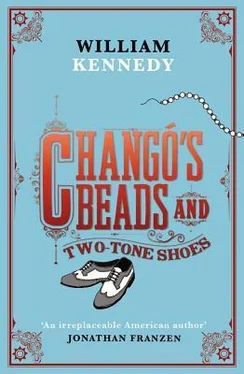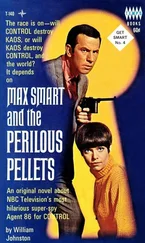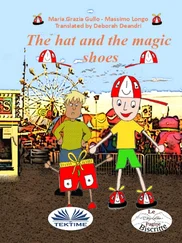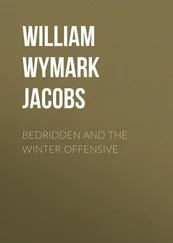Why, then, didn’t Quinn talk to the police chief or the district attorney about the crisis in the city? Because only the Mayor was permitted to have a public thought. The evergreen memory in the Party was of the convention delegate who was allowed to make a speech and nominated the wrong man. Quinn was determined to draw the Mayor out by logic (unlikely) or trick or outrage or shame (impossible but worth a try), provoke him into uttering one consequential sentence, which would be a triumph.
“I hope we can keep this brief,” the Mayor said.
“We can,” said Quinn. “The city is on edge, blah blah, racial tension blah, and on top of this comes the shooting of Bobby Kennedy, which aggravates the situation, doesn’t it? Your reaction?”
“National tragedy blah blah, might have been president blah, grieve for his family blah.”
“The Albany Democratic organization didn’t like Bobby. He didn’t play the game, went his own way with his own people blah.”
“We have nothing but admiration for Bobby blah. We would have backed him one hundred percent blah in November.”
“You put out the word to cut Bobby when he ran for the Senate.”
“You are misinformed.”
“Patsy McCall said publicly that Bobby was a stiff and a louse. You have never reacted publicly to that remark.”
“Is this an interview or an attack, Mr. Quinn?”
“How do you assess the public anger tonight blah blah, the downtown protest and vigil for Bobby, student anger over the silencing of Father Matt Daugherty, Catholics protesting blah blah, angry blacks fuming since Martin Luther King’s death, other cities rioting.”
“Yes, that’s blah,” said the Mayor, “doing all we can, police out in force blah, guns blah, won’t abide terror on our streets, store windows broken blah, citizens hit with rocks blah.”
“My father was one of those citizens,” Quinn said.
“Yes, I heard, cut by flying glass,” said the Mayor. “I met him this afternoon on Eagle Street. He was very cheerful.”
“That’s his nature. Have you been down to the scene?”
“Which scene?”
“North Pearl Street.”
“You mean the Palace?”
“The Palace?” said Quinn.
“There was a killing there,” the Mayor said.
Quinn waited. What was this?
“A young white boy is dead, attacked by Negro youths — that’s our first report. You haven’t heard?”
“No. When?”
“Five minutes ago.”
“Anyone arrested?”
“Not yet.”
“What does this do to your plans for controlling violence?”
“Our police force is equal to anything that happens blah.”
“If there’s a riot will you blah blah the State Police?”
“No. Our own police have tear blah gas, shotguns, and they won’t tolerate any blah blah.”
“Will they shoot to kill?”
“They will use their best blah.”
“I talked to a black man today who was recruited to assassinate you.”
The Mayor crinkled his eyes, leaned back in his chair.
“Really?” he said. “Who is he?”
“He’s a friend of mine. Another black man named Zuki cajoled him into talking about it and took him for target practice with an AR-15. Have you heard of anyone named Zuki?”
“No. But your friend should tell our police chief about this.”
“I’m telling you. You’re better than the police. The man believes the police will throw him in jail, and he’s probably right. Zuki is the obvious target here, a conspirator talking murder. He shouldn’t be hard to find. He goes to the State University and has a part-time job at Holy Cross Institute.”
“Was this why you wanted this interview — to sensationalize it?”
“I thought you should know people are talking about murdering you.”
“I am grateful for your concern.”
“But you don’t believe it’s real, do you?”
“I don’t believe it? Off the record?”
“All right.”
“Of course I believe it. Many people out there hate me.”
“I know you have enemies.”
“The Black Panthers talk openly about killing white police and they have counterparts in this city — and you write about them in your newspaper. Those fellows call me a racist but I’m no racist and never have been. They are the racists. They want me dead because I’m a white man with power over their lives and they’re sending a message that white power is passé and Black Power is the new force to reckon with in this country. But their Black Power nonsense and their so-called creative conflict are just old-fashioned anarchism in new clothes, a national cancer that’s destroying the blah blah bridges so painstakingly blah between the races. They’re calling for blood and I think they’ll get it. This country has to see this blah blah danger for what it is. Intelligent blacks don’t want the cancer these barbarians are spreading. Your news is no surprise to me, Mr. Quinn. We know they have guns and will use them.”
“This assassination talk is very like political theater.”
“Target practice with an AR-15 is theater?”
“It seems far too stupid to be real. My man is a wino who’s probably dying and I doubt he could shoot himself in the foot. But if he’s set up as a would-be assassin, any group he’s linked to is trashed.”
“What groups is he linked to?”
“You know them and so do all the intelligence agencies, whose fingerprints seem to be all over this. Zuki looks very like a by-the-book provocateur. Did he ask your permission to assassinate you?”
“I think you should bring your man to see Police Chief Tobin.”
“You know, Mr. Mayor, that people who give allegiance to City Hall have tried twice to entrap me over what I was writing about race and politics for the newspaper. And somebody offered me a job in Chicago to get me out of town. At one protest meeting I counted five undercover people, not provocateurs like Zuki, more like robotic stenographers, all out of place at such meetings, all reporting back to somebody’s big brother.”
“You have a conspiratorial flair.”
The Club steward entered the room with a telephone saying the Mayor had a call and he plugged the cord into a wall jack. The Mayor spoke, listened, hung up.
“Some news that may interest you, Mr. Quinn. A black man named Tremont is at the Four Spot bar on Clinton Square talking about shooting a politician. They say he’s wearing two-tone shoes. He’s with an older man named George who’s talking about shooting people for throwing rocks. The manager is trying to detain them both till the police get there.”
“The anarchists have descended,” Quinn said.
The Mayor smiled. “Ask them to stop by headquarters and talk to Chief Tobin.” The phone rang and the Mayor answered. Then he said to Quinn, “Now a racial fight has broken out at the Four Spot and someone threw Molotov cocktails into it.”
Quinn stood up. “So the revolution begins. Do you want to go down and make some notes?”
“I might be assassinated,” the Mayor said.
“There’s always that risk in a revolution, Mr. Mayor,” Quinn said.

When George stopped singing he walked a while in silence, then said, “What was all that back at Johnny’s bar? That was some fuss.”
“I’d say it was the hand of God that got us out of there,” Matt said, “and God was especially handy with Tremont. Did you hear him talk about shooting a politician?”
“I didn’t know what the hell he was saying,” George said.
“The bartender did. He called the police and I’m sure they’re looking for Tremont right now, don’t you think, Tremont?”
“Cops been lookin’ for me half my life.”
Читать дальше













